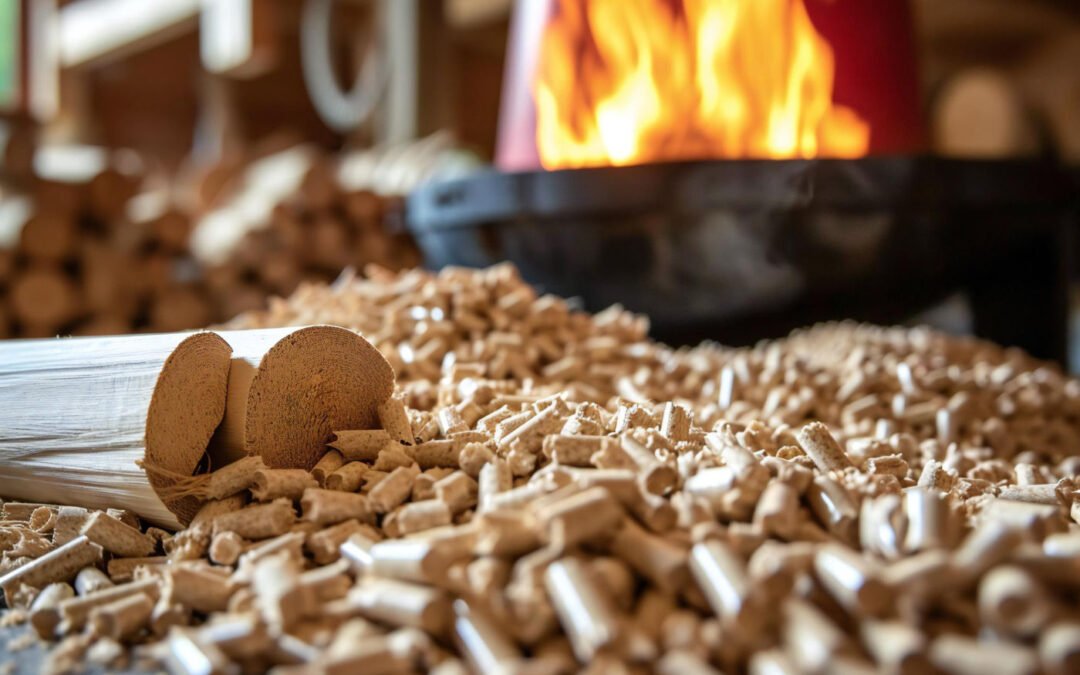Benefits of wood pellets
Wood pellets offer several benefits as a biomass fuel for heating:
- High Energy Density: Wood pellets have a high energy density, meaning they can produce a significant amount of heat per unit of weight. This makes them an efficient and effective fuel for biomass boilers and stoves.
- Low Moisture Content: Wood pellets typically have a low moisture content, which contributes to cleaner and more efficient combustion. Low moisture content also means that the pellets can be stored for long periods without deteriorating.
- Consistent Size and Shape: Wood pellets are manufactured to be uniform in size and shape, ensuring a consistent feed into the boiler or stove. This uniformity contributes to more predictable and efficient combustion.
- Easy to Handle and Store: Wood pellets are compact and easy to store, requiring less space compared to other forms of biomass fuel such as wood chips or logs. Their standardized size and shape also make them easier to handle and transport.
- Automated Feeding: Many modern biomass boilers are designed to automatically feed wood pellets into the combustion chamber, ensuring a constant supply of fuel without the need for manual intervention.
- Low Emissions: When burned in a properly maintained biomass boiler, wood pellets produce low emissions, making them a relatively clean and environmentally friendly heating fuel.
- Availability: Wood pellets are widely available from various suppliers, and their consistent quality makes them a reliable fuel source for residential, commercial, and industrial heating applications.
Overall, the benefits of wood pellets make them a popular choice for biomass heating systems, offering efficiency, convenience, and environmental advantages.


